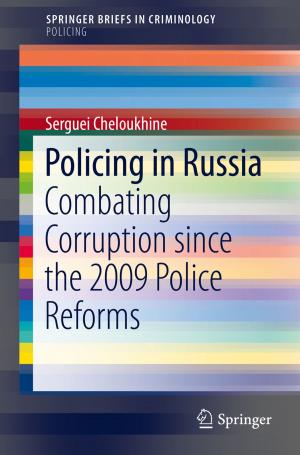PTSD and Forensic Psychology
Applications to Civil and Criminal Law
Nonfiction, Health & Well Being, Psychology, Applied Psychology, Psychotherapy, Medical| Author: | Laurence Miller | ISBN: | 9783319090818 |
| Publisher: | Springer International Publishing | Publication: | February 25, 2015 |
| Imprint: | Springer | Language: | English |
| Author: | Laurence Miller |
| ISBN: | 9783319090818 |
| Publisher: | Springer International Publishing |
| Publication: | February 25, 2015 |
| Imprint: | Springer |
| Language: | English |
In World War I, they spoke of shell shock. By World War II, the term was battle fatigue. Modern understanding of trauma psychology has evolved to give the concept a non-military name: posttraumatic stress disorder. As such, it has been at the heart of civil and criminal cases from workers' compensation to murder.
PTSD and Forensic Psychology brings its topic into real-world focus by examining posttraumatic stress as a clinical entity and taking readers through the evaluation process for court cases involving the PTSD syndrome. This timely reference differentiates between PTSD and disorders that may be mistaken for it, and demonstrates its legal application in seeking civil damages and mounting a criminal defense. An evidence-based framework for conducting a trial-worthy evaluation and guidelines for establishing strong cases and refuting dubious ones further illustrate the protocols and challenges surrounding the status of PTSD in legal settings. For maximum usefulness, the book offers courtroom advice for expert witnesses as well as "practice points" at the end of each chapter. Featured topics include:
- History of the PTSD concept and its relation to the law.
- PTSD as syndrome: symptoms, diagnosis, treatment.
- PTSD and other traumatic disability syndromes.
- PTSD in the civil litigation and criminal justice systems.
- PTSD as an insanity defense and in claims of diminished capacity.
- PTSD cases: evaluation, interpretation, testimony.
This thorough yet concise analysis makes PTSD and Forensic Psychology the ideal training tool for beginning mental health expert witnesses, as well as a concise practical review and reference source for seasoned forensic psychologists. It will also serve as a useful practice and teaching guide for attorneys, medical rehabilitation professionals, military personnel, psychotherapists, researchers, and educators in the fields of clinical and forensic psychology, criminology, traumatic stress studies, and mental health law.
In World War I, they spoke of shell shock. By World War II, the term was battle fatigue. Modern understanding of trauma psychology has evolved to give the concept a non-military name: posttraumatic stress disorder. As such, it has been at the heart of civil and criminal cases from workers' compensation to murder.
PTSD and Forensic Psychology brings its topic into real-world focus by examining posttraumatic stress as a clinical entity and taking readers through the evaluation process for court cases involving the PTSD syndrome. This timely reference differentiates between PTSD and disorders that may be mistaken for it, and demonstrates its legal application in seeking civil damages and mounting a criminal defense. An evidence-based framework for conducting a trial-worthy evaluation and guidelines for establishing strong cases and refuting dubious ones further illustrate the protocols and challenges surrounding the status of PTSD in legal settings. For maximum usefulness, the book offers courtroom advice for expert witnesses as well as "practice points" at the end of each chapter. Featured topics include:
- History of the PTSD concept and its relation to the law.
- PTSD as syndrome: symptoms, diagnosis, treatment.
- PTSD and other traumatic disability syndromes.
- PTSD in the civil litigation and criminal justice systems.
- PTSD as an insanity defense and in claims of diminished capacity.
- PTSD cases: evaluation, interpretation, testimony.
This thorough yet concise analysis makes PTSD and Forensic Psychology the ideal training tool for beginning mental health expert witnesses, as well as a concise practical review and reference source for seasoned forensic psychologists. It will also serve as a useful practice and teaching guide for attorneys, medical rehabilitation professionals, military personnel, psychotherapists, researchers, and educators in the fields of clinical and forensic psychology, criminology, traumatic stress studies, and mental health law.















